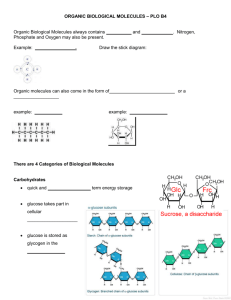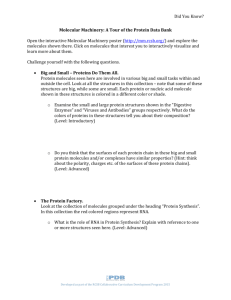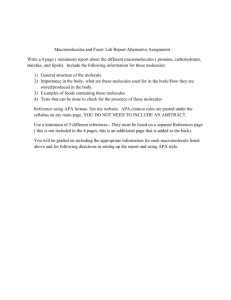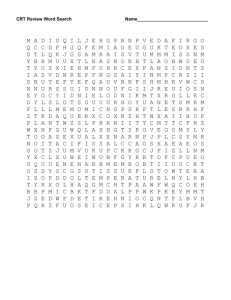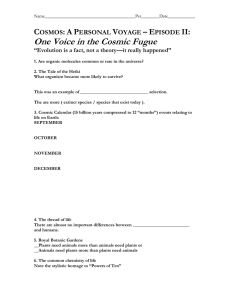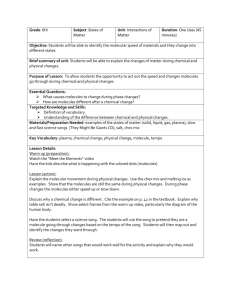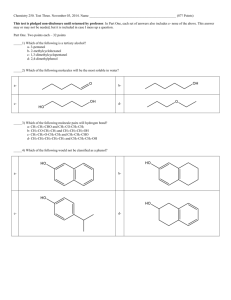Functional frameworks from large aromatic building blocks:
advertisement
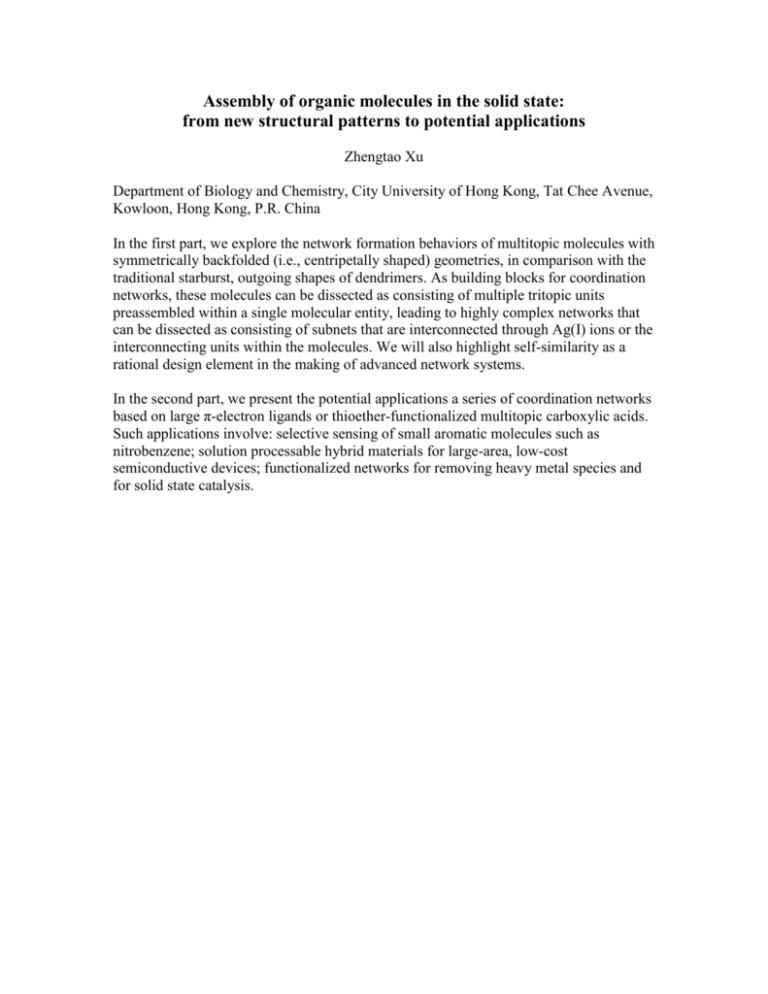
Assembly of organic molecules in the solid state: from new structural patterns to potential applications Zhengtao Xu Department of Biology and Chemistry, City University of Hong Kong, Tat Chee Avenue, Kowloon, Hong Kong, P.R. China In the first part, we explore the network formation behaviors of multitopic molecules with symmetrically backfolded (i.e., centripetally shaped) geometries, in comparison with the traditional starburst, outgoing shapes of dendrimers. As building blocks for coordination networks, these molecules can be dissected as consisting of multiple tritopic units preassembled within a single molecular entity, leading to highly complex networks that can be dissected as consisting of subnets that are interconnected through Ag(I) ions or the interconnecting units within the molecules. We will also highlight self-similarity as a rational design element in the making of advanced network systems. In the second part, we present the potential applications a series of coordination networks based on large π-electron ligands or thioether-functionalized multitopic carboxylic acids. Such applications involve: selective sensing of small aromatic molecules such as nitrobenzene; solution processable hybrid materials for large-area, low-cost semiconductive devices; functionalized networks for removing heavy metal species and for solid state catalysis.


